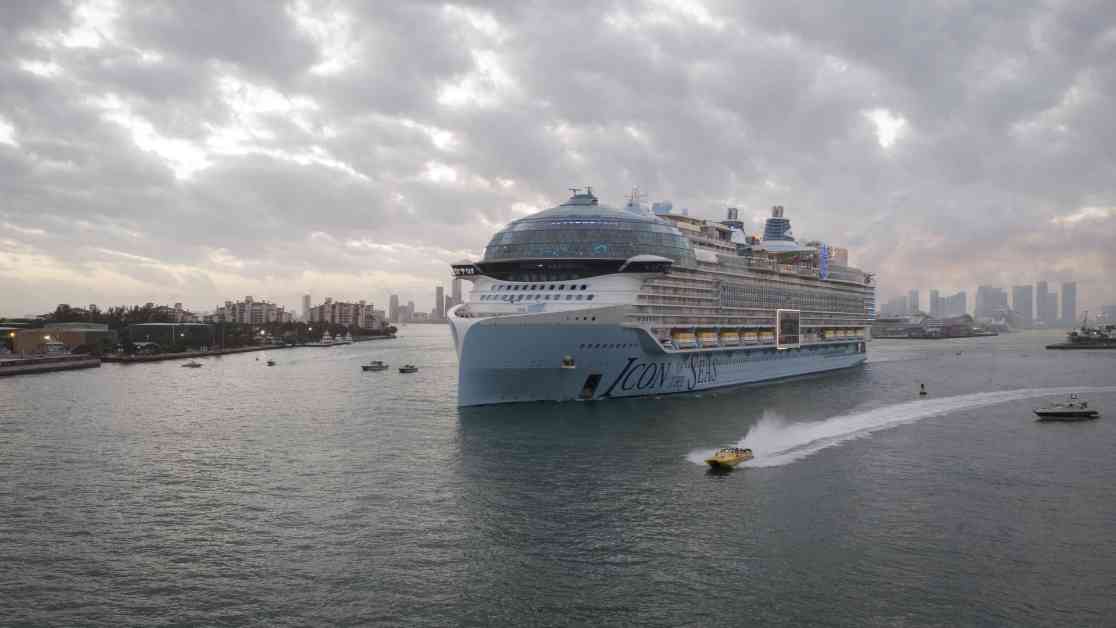Cruise Lines: A Popular and Affordable Alternative to Hotels
Royal Caribbean’s “Icon of the Seas,” known as the largest cruise ship in the world, embarked on its maiden voyage from the Port of Miami in Florida on January 27, 2024. Despite the challenges faced by the travel industry due to the Covid-19 pandemic, the demand for cruises remains strong and shows no signs of slowing down.
According to Patrick Scholes, a travel and leisure analyst at Truist, cruise companies are currently experiencing a surge in pricing and booking momentum. While pricing growth is starting to stabilize, it still remains significantly higher than the rate of inflation.
One of the key factors contributing to the popularity of cruises is their affordability compared to traditional land-based lodging options. Even with price increases, cruises offer a more cost-effective vacation choice, which is particularly appealing as other areas of the travel sector are experiencing weakness.
Barclays analyst Brandt Montour highlighted that the strength in bookings and demand for cruises is driven by the combination of lower prices compared to land-based vacations and elevated service levels. This has allowed cruise operators to report net revenue per diems well above pre-pandemic levels.
Furthermore, the gap between hotel prices and cruise prices has widened in recent years, offering cruise lines room for further growth. UBS leisure analyst Robin Farley pointed out that the increase in direct bookings for cruises, along with additional onboard revenue streams, has contributed to this price gap.
Additionally, cruise operators have been investing in new offerings such as private islands like Royal Caribbean’s CocoCay, which provide unique experiences for passengers. These strategic investments, combined with the rollout of high-speed internet access onboard, are expected to drive increased passenger revenue.
Looking ahead, cruise operators are focused on increasing pricing, which plays a crucial role in improving profitability. Scholes emphasized that even a small increase in pricing can have a significant impact on the bottom line due to the industry’s high fixed costs.
Analysts are optimistic about the future prospects of cruise operators, with Royal Caribbean, Carnival, and Norwegian Cruise Line Holdings all receiving favorable ratings from analysts. These companies are expected to benefit from increased demand, strategic investments, and new offerings that cater to evolving consumer preferences.
In conclusion, the cruise industry continues to attract travelers with its unique offerings, affordability, and focus on enhancing the passenger experience. As the sector recovers from the impact of the pandemic, cruise operators are well-positioned to capitalize on the growing demand for leisure travel and offer travelers a compelling alternative to traditional hotels.

